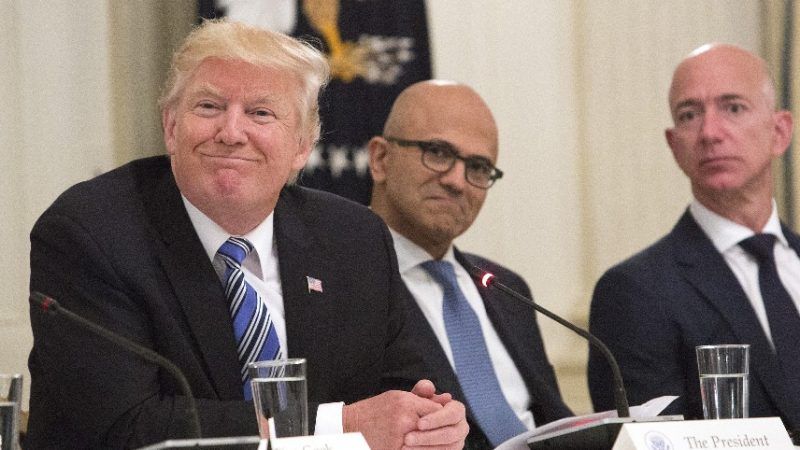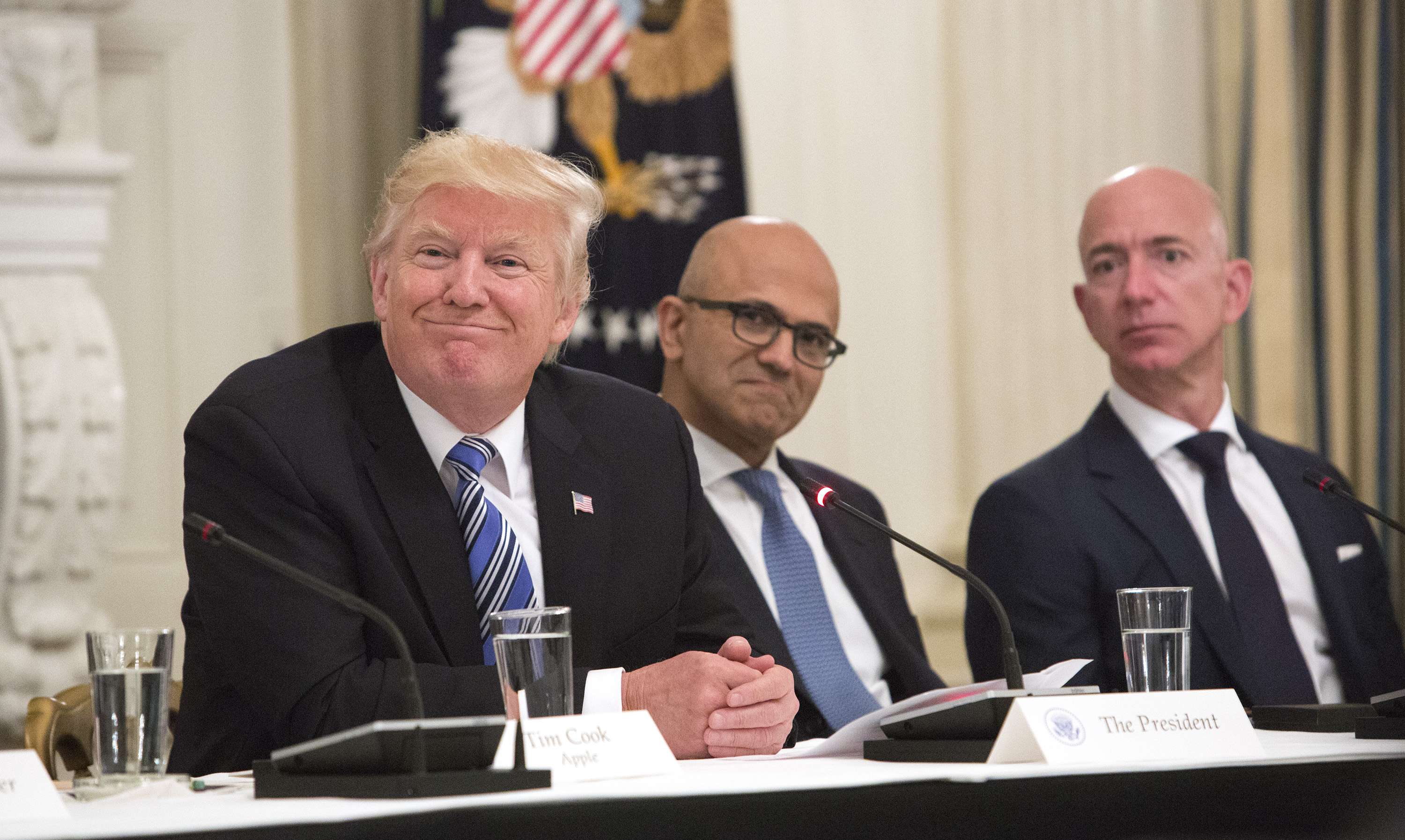Donald Trump Unambiguously Condemns…Amazon
Today's presidential tweet about the online retail giant is wrong about taxes, jobs, and the future.

President Donald Trump woke up this morning and decided to tweet about how much he dislikes a major American corporation.
Amazon is doing great damage to tax paying retailers. Towns, cities and states throughout the U.S. are being hurt - many jobs being lost!
— Donald J. Trump (@realDonaldTrump) August 16, 2017
This is pretty normal for the president, who has been singling out companies for praise and blame since the earliest days of his presidential campaign. Trump's unique spin on cronyism typically involves more public bullying than his predecessors, but he's hardly the first to use the power of the presidency to try to dictate firms' internal decisions about where to locate factories, whom to hire and fire, how to file tax returns, or what to produce. Sometimes his signature variant of corporate authoritarianism rises to the level of state action, in the form of subsidies, threatened investigations, or withdrawal of government contracts. Sometimes it sticks to the rhetorical realm.
Amazon shareholders seemed worried about the former this morning, though I suspect the stock price will bounce back. (I'm not the first person to only semi-jokingly suggest an investment strategy based around buying the reflexively tanking stocks of the companies bashed by Trump on Twitter and then selling when they recover.)

Today's entry into the genre of bullying tweets seems to be based on a misunderstanding, however: Amazon hasn't always broadly collected sales tax, since the law and mechanism for tax collection on internet purchases is still evolving. But since April, the retailer collects taxes in every state where it has a physical presence. A 1992 Supreme Court ruling, Quill Corporation vs. North Dakota, prohibits states from extracting taxes from companies that don't have a physical location within their borders.
It seems likely that Trump is confused about the facts here, but if he's not, then perhaps he's making the same argument that Republicans love to mock when the Democratic counterparts make it: That businesses should pay more tax than they are legally required to by ignoring loopholes or other technicalities, because there's something shady or un-American about minimizing tax burden. Trump should be wary of making such arguments, since his as-yet-unreleased tax returns almost certainly reveal similar techniques. He also shouldn't make such arguments because they are simple wrong—paying the amount of tax the law requires and not a penny more is not only legal but morally commendable, especially if you believe your tax money is going to waste or to fund activities that are harmful. Amazon is just the latest scapegoat in a long line of large successful firms that have shifted the way the retail sector functions, including Walmart, Borders Books, and more.
Trump's tweet is nicely calibrated to play on existing confusion between the economic health of a municipality and the level of tax collection, as well as the relationship between state and local income taxes and job creation. It true: More efficient means of warehousing and distributing goods will mean fewer jobs in the sub-set of the retail sector previously dedicated to warehousing and distributing goods. But that tells us nothing about tax revenues, and even less about the broader economic health of the nation.
Politicians of both parties love to traffic in static thinking about the tax base. Some of those politicians actually believe their own story that if the small businessman on Main Street stops paying sales tax on the stuff he sells to his neighbors in meatspace, the state's tax base will collapse and no one will have jobs anymore. Others know that the labor market and the sources of tax revenue are more complex and dynamic than that, but play on the public's ignorance and blurry thinking about these questions.
An alternate explanation: Donald Trump already has a history of vaguely threatening The Washington Post, which is owned by Amazon's Jeff Bezos. It may well be that this tweet is just a slightly more successfully veiled attempt to discredit his journalistic enemies than his previous direct hits. Stay tuned for a WaPo scoop?


Show Comments (38)